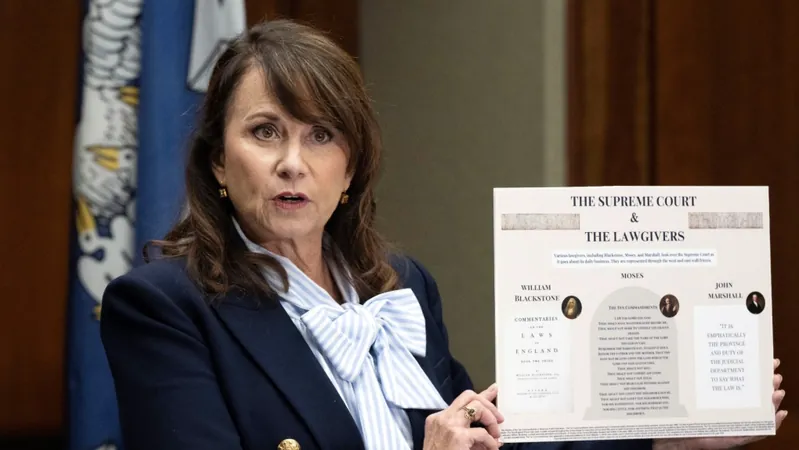
Federal Judge Halts Louisiana Law Mandating Ten Commandments in Classrooms – What This Means for Public Education
2024-11-12
Author: William
Overview of the Ruling
In a significant ruling, a federal judge has stepped in to temporarily block a new Louisiana law requiring the Ten Commandments to be displayed in every public classroom by January 1.
Constitutional Concerns
U.S. District Judge John W. deGravelles stated that the law is "unconstitutional on its face," highlighting concerns over its overtly religious intent.
Legal Challenge
The ruling came amidst a lawsuit that argues the law violates the First Amendment, which prohibits the government from establishing a religion.
Impact on Students
Opponents of the law voiced that the mandated display could alienate students who do not identify as Christian, raising questions about inclusivity in public education.
Preliminary Injunction
DeGravelles further emphasized the coercive nature of the law, noting that parents are legally required to send their children to school for a minimum of 177 days per year.
Arguments For the Law
Proponents, including state lawmakers and supporters of the current administration, argue the law’s historical significance, claiming the Ten Commandments are foundational to U.S. law.
Historical Context
The Ten Commandments law emerged from a predominantly Republican legislature in Louisiana, a state known for its strong Christian beliefs.
Challenges to Similar Laws
In the face of potential legal battles, many of these state laws have faced setbacks, as evidenced by a 1980 U.S. Supreme Court decision that struck down a Kentucky law requiring the Ten Commandments’ display.
Practical Considerations
Louisiana's law requires that the Ten Commandments be presented in posters at least 11 by 14 inches in size, placed prominently within classrooms.
The Bigger Picture
Educators and parents alike are watching closely as the legal ramifications of this ruling unfold, with concerns about its impact on religious freedom and the nature of education in a diverse society.
Conclusion
This case has the potential to set a precedent, influencing similar legislative efforts nationwide. This battle over the classroom may just be the tip of the iceberg in a much larger conflict over the role of religion in American public schools.









 Brasil (PT)
Brasil (PT)
 Canada (EN)
Canada (EN)
 Chile (ES)
Chile (ES)
 España (ES)
España (ES)
 France (FR)
France (FR)
 Hong Kong (EN)
Hong Kong (EN)
 Italia (IT)
Italia (IT)
 日本 (JA)
日本 (JA)
 Magyarország (HU)
Magyarország (HU)
 Norge (NO)
Norge (NO)
 Polska (PL)
Polska (PL)
 Schweiz (DE)
Schweiz (DE)
 Singapore (EN)
Singapore (EN)
 Sverige (SV)
Sverige (SV)
 Suomi (FI)
Suomi (FI)
 Türkiye (TR)
Türkiye (TR)